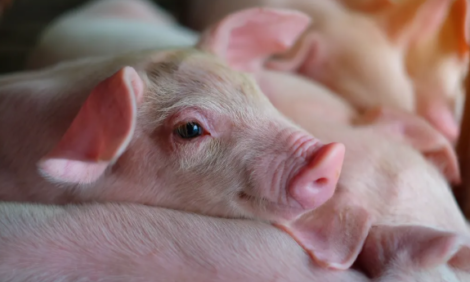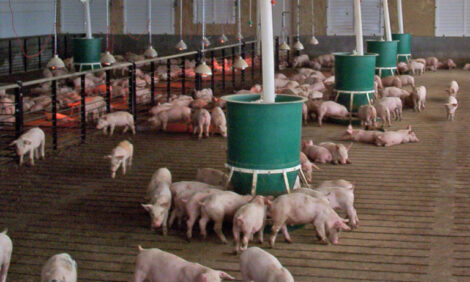



Prevalence of Trichinella in Pigs in Ireland
The Food Safety Authority of Ireland recently conducted a survey to investigate the prevalence of Trichinella in pigs slaughtered in low-throughput pig slaughterhouses. From August 2007 to January 2009, a total of 10,247 samples were taken and analysed for Trichinella in 33 slaughterhouses supervised by the local authority veterinary service. No positive samples were detected.Trichinellosis is a zoonotic disease caused by the nematode worm, Trichinella. Humans and animals contract the disease by eating infected muscle (meat) that is inadequately cooked. The most common sources of human infection are pig meat, wild game and horse meat.
There are at least eight recognised species of Trichinella, the most commonly isolated species is Trichinella spiralis.
The last native case of human trichinellosis reported in Ireland was in 1968. In 2008, there were two cases of trichinellosis in Ireland. Following investigation, it was established that both cases acquired infection outside of Ireland. In Europe, the prevalence of human trichinellosis varies considerably between countries. In 2008, the highest numbers of cases were recorded in Romania, Bulgaria and Lithuania (35). In 2007, Denmark received recognition from the EU Commission and Member States as a region where the risk of Trichinella in domestic swine is officially recognised as negligible. There has been no report of trichinellosis in animals in Ireland since 1968 (7).
Until 2006, all pigs destined for third countries, slaughtered in Department of Agriculture, Fisheries and Food (DAFF) supervised meat export plants were examined for Trichinella in accordance with Directive 64/433 EC. This Directive applied only to DAFF supervised exporting slaughterhouses. It did not apply to the local authority supervised slaughterhouses that traditionally supplied the domestic market only. The testing carried out represented approximately 50 per cent of all pigs slaughtered in Ireland (32).
Since 2006, all slaughterhouses approved under Regulation (EC) 853/2004 can export meat within the European Union. Regulation (EC) 2075/2005 applies within all approved slaughterhouses. The Regulation lays down specific rules on official controls for Trichinella in meat. All domestic pigs and horses slaughtered for human consumption must be sampled for Trichinella as part of the post-mortem inspection.
All horses slaughtered in Ireland are tested for Trichinella. Consumption of horse meat in Ireland is low; much of the horse meat produced in Ireland is exported to France and Belgium.
Wildlife surveys conducted in Ireland show that the sylvatic or wildlife cycle of Trichinella continues in Ireland, independent of the domestic pig cycle. Outdoor or extensively reared pigs that may be exposed to wildlife are at a greater risk of contracting trichinellosis from wildlife sources (6).
The Food Safety Authority of Ireland (FSAI) conducted a survey to investigate the prevalence of Trichinella in pigs slaughtered in low-throughput pig slaughterhouses. Many of these slaughterhouses source pigs from extensive or ‘backyard’ pig production systems. The FSAI targeted this ‘high-risk’ sub-population by focusing the survey on low-throughput slaughterhouses.
From August 2007 to January 2009, a total of 10,247 samples were taken and analysed for Trichinella in 33 slaughterhouses supervised by the local authority veterinary service. There were no positive samples detected during the survey.
This survey shows that over an 18-month period, there were no positive samples of Trichinella in a domestic pig sub-population which is most vulnerable to exposure to Trichinella-infested animals and birds.
Ireland may apply to the European Commission to implement a derogation from the systematic sampling of pig carcasses for domestic swine kept solely for fattening where these animals come from a holding that has been officially recognised by DAFF as free from Trichinella in accordance with Regulation (EC) 2075/2005. These holdings will be audited to verify compliance with biosecurity measures. Fattening pigs from these holdings will be exempt from mandatory Trichinella testing.
Ireland is required to submit an annual report to the European Commission (EC) on the results of monitoring in domestic and indicator animals following the implementation of a derogation provided for in Regulation (EC) 2075/2005. Ireland submitted its initial report to the EC in June 2009.
Since the conclusion of the FSAI Trichinella survey, Trichinella sampling and analysis have continued in local authority supervised slaughterhouses.
Further Reading
| - | You can view the full report by clicking here. |
June 2010








